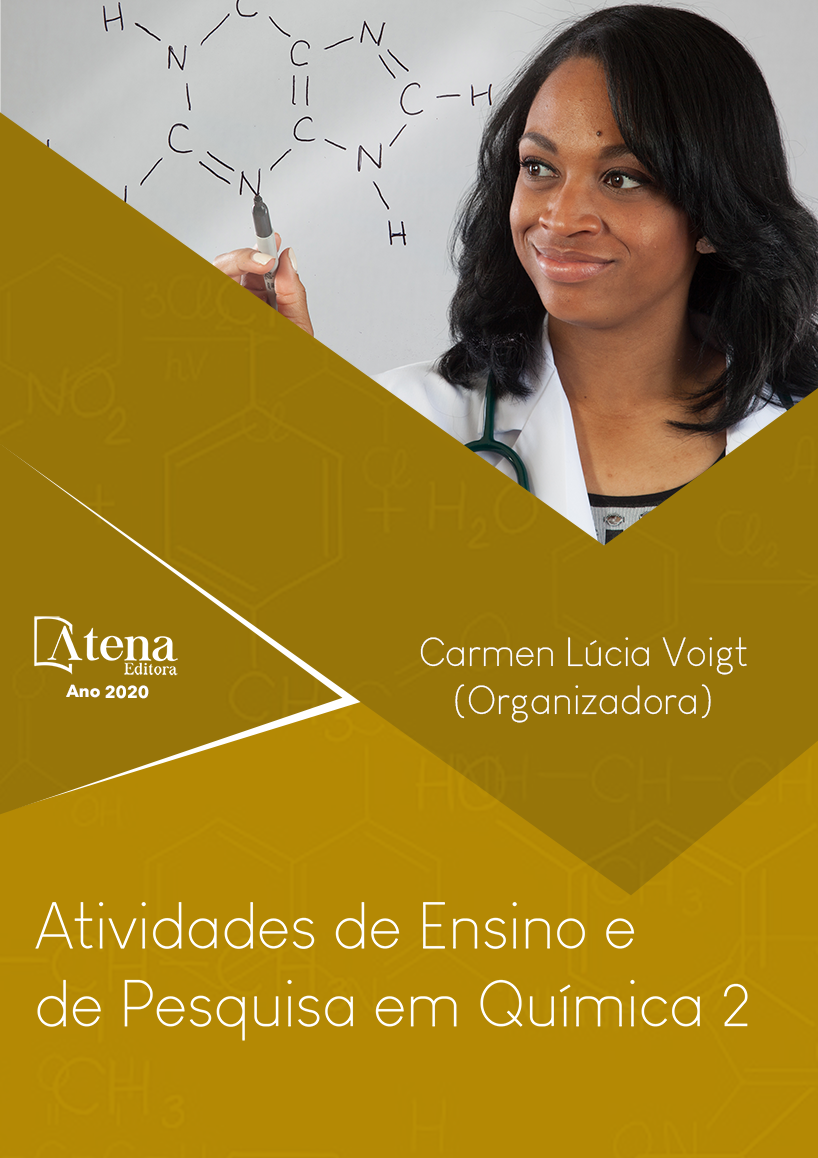
JOGO DIDÁTICO COMO FERRAMENTA FACILITADORA NO ENSINO DE QUÍMICA PARA ALUNOS DO 3º ANO DO ENSINO MÉDIO
O uso de atividades lúdicas em
sala de aula ainda é uma atividade pouco
explorada, e tem ganhado cada vez mais
espaço entre os educadores, e sobretudo pode
ser uma maneira de despertar o interesse do
aluno pela Química, além disso, colabora como
ferramenta de transformação desse aluno em
termos sociais, direcionando-o a uma vida
integrada com a sociedade (BERGAMO,2012).
De certo, a utilização do lúdico, que inclui
jogos, brinquedos e brincadeiras, pode não
representar de imediato um aprendizado, mas
com certeza desenvolve potenciais no sujeito,
até mesmo quando são encaradas como passa
tempo, proporcionando mais oportunidades
de se abastecer intensamente o educando de
informações e conhecimentos, com base nas
várias simulações e fantasias que executa
(SOARES, 2013). O método aplicado a esta
pesquisa apresentou caráter qualitativo,
objetivando a obtenção de dados descritivos
mediante o contato direto do pesquisador com
o objeto de pesquisa, buscando entender os
fenômenos pela perspectiva dos participantes da
situação estudada. Nesse hiato, o público alvo da
presente proposta foram 45 alunos e 1 professor
do 3º ano do Ensino Médio, pertencentes à
rede pública estadual da cidade de Grajaú-
MA. Observou-se a turma selecionada, bem
como aplicação de questionário com os alunos
e professores, com o propósito de discutir
sobre os problemas no ensino de Química e
como os jogos são aplicados em sala de aula.
Executou-se a proposta do jogo pedagógico
“Trilha Orgânica” de Química, relacionado aos
conteúdos previamente trabalhado, onde os
resultados demonstrados, levam a afirmar que
a atividade teve uma boa aceitação por parte
dos alunos. Em síntese, compreendeu-se que,
o recurso lúdico deve estar sempre aliado a objetivos pedagógicos, com intuito de
estimular o aluno na apropriação de conhecimentos acerca dos assuntos propostos.
JOGO DIDÁTICO COMO FERRAMENTA FACILITADORA NO ENSINO DE QUÍMICA PARA ALUNOS DO 3º ANO DO ENSINO MÉDIO
-
DOI: 10.22533/at.ed.2952017012
-
Palavras-chave: Química. Jogo. Lúdico. Aprendizagem
-
Keywords: Chemistry. Game. Ludic. Learning.
-
Abstract:
The use of recreational activities in the classroom is still a little explored
activity, and has been gaining more space among educators, and above all can be
a way to arouse the student's interest in chemistry, besides, collaborates as a tool
of transformation of this student in social terms, , directing it to a life integrated with
society (BERGAMO, 2012). Of course, the use of playfulness, which includes toys and
games, it may not immediately represent learning, but it certainly develops potential
in the subject, even when viewed as a hobby, providing more opportunities to provide
the learner with intense information and knowledge, based on the various simulations
and fantasies it performs (SOARES, 2016). The method applied to this research was
qualitative, aiming to obtain descriptive data through the direct contact of the researcher
with the research object, , seeking to understand the phenomena from the perspective
of the participants of the studied situation. In this hiatus, the target audience of this
proposal were 45 students and 1 teacher of the 3rd year of high school, belonging to
the state public network of the city of Grajaú-MA. The selected class was observed, as
well as a questionnaire with students and teachers, with the purpose of discussing the
problems in chemistry teaching and how the games are applied in the classroom. The
proposal of the pedagogical game “Organic Trail” of Chemistry was executed, related
to the contents previously worked, where the results demonstrated, lead to affirm that
the activity had a good acceptance by the students. In summary, it was understood
that the playful resource must always be allied to pedagogical objectives, in order to
stimulate the student in the appropriation of knowledge about the proposed subjects.
-
Número de páginas: 15
- Maria Rosa Pires
- Rosana Mendes de Matos Privado
- Amanda Resende Torres


